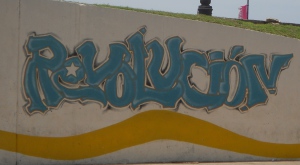Steve Wakefield was born in England and when he got married, he moved to Australia. A scientist keen on researching Cuban literature, he came to Cuba a few years ago to the Writers’ Congress dedicated to Carpentier to pay a 4-day tribute to the Cuban writer. My husband, who had also been invited to the event, offered him to stay in our house to save on accommodation costs.

“You can use the money you save to buy food, which is really difficult to get in Cuba,“ we told him, and he loved the idea.
“Well, I’m planning to live like a Cuban,” said Steve, putting his backpack in a corner of the room. “I want to eat the same food as you do, use the soap that you use while bathing… As a matter of fact, I want to be as hungry as you are.”
This idea of his clearly went against our hope of experiencing a bit of an existential relief, but we supported him and helped him stick to his plan.
When the Writer’s Congress started, my husband and Steve went together to attend the discussion forums and after they returned in the afternoon, we served a frugal meal and then we drank some “Cuba Libre” and discussed literature.
Steve told us about his book about Carpentier he presented in the congress entitled “Carpentier’s Baroque Fiction”. As it cost about 75 USD, it was clear that he hadn’t been able to sell any.
He had leftist political views and we saw how dazzled he was by the mysticism of the Revolution. Yet, the reality showed him something else: what he saw was different from what he expected from socialism, leading him to a blind alley of questions.
One day when we were walking around Havana, he stopped in front of a pier and exclaimed:
“I will never allow my son to come here… There’s danger everywhere! Look at those broken pavements, those sewers without caps, those open gaps in the middle of the street!”
He spoke fluent Spanish, but when he was searching for words to describe “the problem” he saw, he got lost. We helped him by explaining that the State cannot repair them as it has to prioritize other things such as the battle of ideas or the issue of open platforms for debate, but the Englishman disagreed:
“I’m sure that the Revolution doesn’t know about this problem.”
Nor did he understand why there are two currencies in Cuba. We explained the value of each of them and were not surprised tha got upset when he discovered that he had been swindled on some occasions.
He got also angry when he ordered a meal in a paladar (a restaurant run by a self-employer) and had to eat it standing. He couldn’t understand why the State granted licenses that forbade owners of paladares to put chairs in the premises of their restaurants. After dinner he asked if he could speak with the owner.
A plump, middle-aged woman appeared in one of the windows. Steve asked her what was the name of the meal he had eaten.
“Shredded beef,” replied the owner in a sullen voice.
“Shredded beef? Fabulous!”
As our friend considered taking taxis in Cuba rather bourgeois, he insisted on travelling by public transport.
“Revolutionary austerity,” he called it the first night, making a sophisticated pose while holding high his “Cuba Libre”. From his words you could feel conviction, but after my husband first took him somewhere by the camello bus full of sweating, desperate people, where he was rammed and squeezed, he gave up on his heroism and from then on, he preferred spending some of his dollars on more comfortable and safer means of transport.
From the day Steve arrived in Cuba until he left, he could witness a sequence of absurd situations. For instance, as soon as he arrived at the José Martí airport, the customs seized a hard drive he was bringing us and when he was leaving, they confiscated four boxes of tobacco and two bottles of rum he was carrying for not having bought them at the airport.
“It’s incredible,” commented Steve as we said goodbye at the boarding gate. “What I’ve seen here is enough for a novel, but not one written in a baroque style – nobody would understand. It is to be pure and raw realism. People should get to know about those holes in the streets, the camello buses and the shredded beef from Vedado.”

Leave a comment